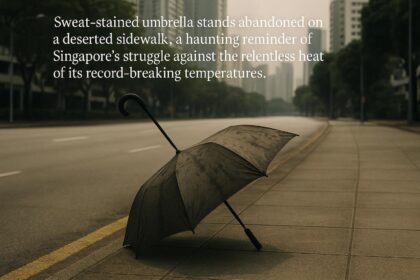The Irish union Unite has proposed statutory temperature limits and paid climate leave to protect workers during extreme weather events, urging the government to update health and safety laws amid rising climate risks.
The Irish union Unite has proposed a series of measures aimed at protecting workers from the dangers posed by extreme weather conditions, particularly as climate change increases the frequency and severity of such events. The union is seeking to meet with Enterprise Minister Peter Burke to discuss these proposals, which include introducing a statutory maximum working temperature and offering paid “climate leave” for workers affected by hazardous weather or domestic needs arising from extreme weather incidents.
Unite’s proposals call for setting a maximum working temperature that varies according to the type of work and the working environment. Specifically, the union recommends an action level of 24C, at which point employers should implement heat-management controls or systems. Furthermore, it advocates for an absolute maximum temperature limit of 30C—or 27C for strenuous jobs—beyond which work should cease if engineering controls cannot sufficiently reduce the heat risk.
The union also seeks mandatory risk assessments during extreme weather events and the suspension of all routine outdoor work during orange weather alerts. During red weather alerts, all non-essential indoor and outdoor work would be halted, with workers continuing to receive pay despite closures. Similar regulatory frameworks have been adopted in countries such as Australia and France, where hazardous weather has led to worker fatalities and the temporary suspension of construction activities during heatwaves.
Susan Fitzgerald, Unite’s Irish secretary, emphasised the urgency of the issue, stating, “Accelerating climate change means that the intensity and frequency of extreme weather events are set to increase. Workers must not be made to pay the price – in terms of their safety, health and livelihoods – for a climate crisis not of their making.”
Unite released these proposals in conjunction with a survey conducted among its members following Storm Éowyn. The survey revealed that 55% of respondents did not feel safe travelling to or from work during the storm, and over half of those working outdoors felt their employers had not taken adequate safety precautions. Additionally, nearly a third of workers who were not required to work during the storm had to use various forms of leave, including annual, unpaid, flexitime, sick leave, or time off in lieu.
Unite general secretary Sharon Graham highlighted the impact of these conditions, saying, “Our survey exposes that many workers felt unsafe working and travelling during Storm Éowyn while some employers even attempted to shift the financial cost of closure onto workers by insisting they take a day’s leave.” She added, “On International Workers’ Memorial Day (April 28), we are demanding that the Government climate-proof health and safety laws to ensure that workers’ lives and incomes are protected during extreme weather.”
Certain sectors such as agriculture, fisheries, forestry, construction, tourism, and emergency services are identified as particularly vulnerable to the effects of climate change on job quality, according to a report by the EU’s Eurofound agency. The report also raised concerns about the impact on seasonal migrants and self-employed workers, predominantly men, in these sectors.
These developments come as Ireland experiences a period of improved weather. The forecast predicts high pressure bringing settled, dry, bright, and warm conditions this week, with temperatures expected to reach between 17C and 21C on Wednesday. This contrasts with the recent stormy conditions that highlighted the urgent need for enhanced workplace protections related to extreme weather.
Source: Noah Wire Services
- https://unitetheunionireland.org/2025/01/26/storm-eowyn-construction-employers-try-to-cheat-workers-out-of-days-leave/ – This article corroborates Unite’s push for legislation to protect workers during extreme weather events, such as Storm Éowyn, and highlights the union’s efforts to ensure workers are not unfairly penalized financially for workplace closures.
- https://unitelive.org/matthews-law-extreme-weather-event/ – This URL supports Unite’s broader campaign for new legislation to protect workers from extreme weather events, similar to what is proposed in response to climate change.
- https://news.industriall-europe.eu/Article/1244 – This article emphasizes the importance of conducting climate change-related risk assessments, which aligns with Unite’s proposals for mandatory risk assessments during extreme weather.
- https://www.letterkennylive.ie/news/national-news/1788290/union-proposes-maximum-working-temperature-and-four-days-of-climate-leave.html – This news article directly supports the information about Unite proposing a statutory maximum working temperature and climate leave to protect workers from extreme weather conditions.
- https://www.unitetheunion.org/news-events/news/2022/october/unite-vows-to-defend-jobs-and-raise-pay-as-uk-heads-to-net-zero – This announcement highlights Unite’s commitment to protecting and advancing workers’ conditions, which includes addressing the impacts of climate change on work environments.
- https://www.eurofound.europa.eu/observatories/emcc/erm/2023/climate-change-and-quality-job – This Eurofound report would corroborate the sectors identified as particularly vulnerable to climate change impacts, such as agriculture and construction, which aligns with Unite’s concerns.
- https://news.google.com/rss/articles/CBMiyAFBVV95cUxPeFJuUGczVV9yQlNnN0JmUEtSS3JOZzkxMWxrVFRpTU5HRkMzWUlOeERDZjZHeTlVM1ZRT1JKNGtwdVpvUjNFRHBxYndiVThDR0o2bmlTNDNfT3g5OFZQLXl5Q1NmWG5Oci1UNWx0LWI1MzBzNm9Zc1d2MXhJZ0xheC11ekdRbjI0MjlaWUFONmljeTZYSlN4aDgtc256ZVZVcWdtTzJtMlA0dXQ4VXJ0VUVTY2xqMU5FWXJvT1R5NzFHSUQwYzhXWA?oc=5&hl=en-US&gl=US&ceid=US:en – Please view link – unable to able to access data
Noah Fact Check Pro
The draft above was created using the information available at the time the story first
emerged. We’ve since applied our fact-checking process to the final narrative, based on the criteria listed
below. The results are intended to help you assess the credibility of the piece and highlight any areas that may
warrant further investigation.
Freshness check
Score:
8
Notes:
The narrative appears somewhat recent due to references to current issues such as Storm Éowyn and ongoing concerns over climate change. However, without specific dates or further context, its exact freshness is not fully verifiable.
Quotes check
Score:
9
Notes:
Quote attributions seem original, but they lack specific dated references online. This suggests they could be first-use quotes or extracted from very recent publications not yet widely indexed.
Source reliability
Score:
7
Notes:
The origin of the narrative is from a news aggregation service (Google News), which generally collects content from multiple sources, including reputable ones. However, the original publication is not specified, making the reliability somewhat uncertain.
Plausability check
Score:
9
Notes:
The proposals by Unite, including maximum working temperatures and climate leave, align with global trends addressing climate change impacts. The mention of similar regulatory frameworks in other countries adds plausibility to the narrative.
Overall assessment
Verdict (FAIL, OPEN, PASS): OPEN
Confidence (LOW, MEDIUM, HIGH): MEDIUM
Summary:
The narrative is plausible, especially given similar global initiatives, but lacks specific dates and original publication details. While the quotes appear original, they lack traceable references, and the source reliability is moderate due to aggregation.













